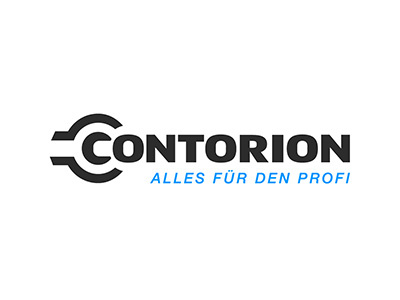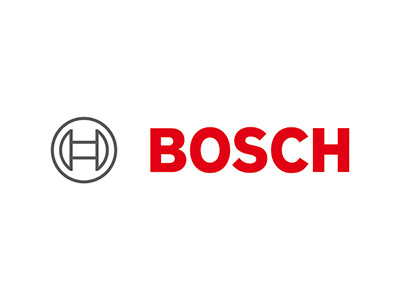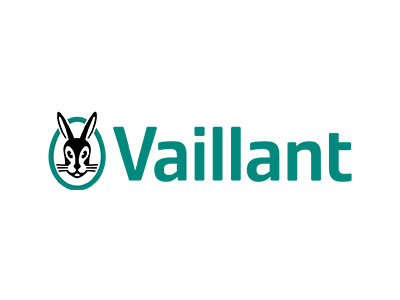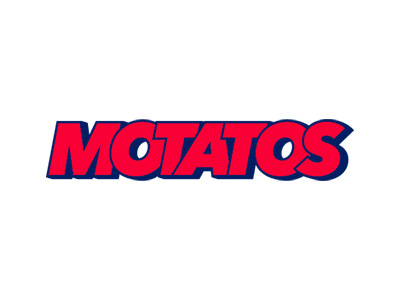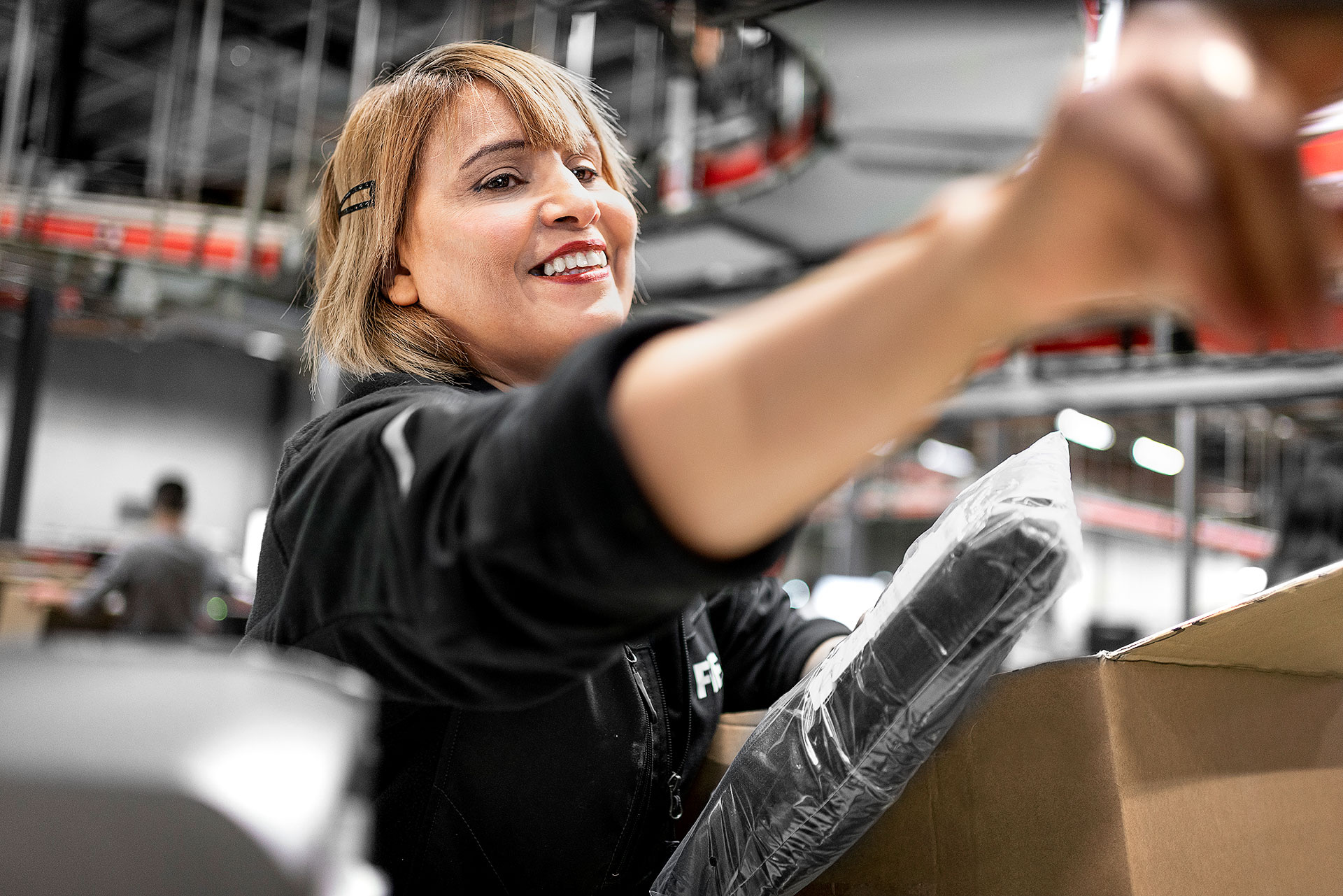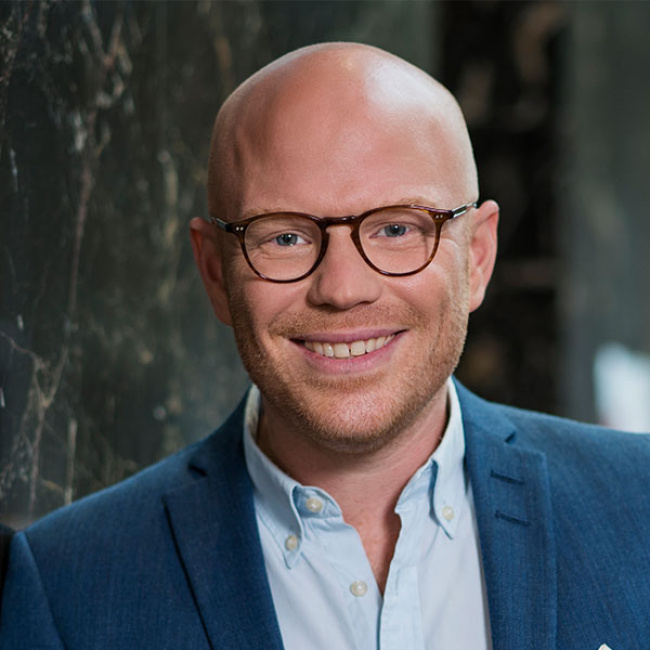Sustainable logistics: Compliance pressure becomes a competitive advantage
Are you faced with the task of making your logistics more sustainable without compromising on efficiency? As an experienced logistics service provider, FIEGE supports you in setting up circular supply chains – from intelligent returns management and reCommerce solutions to reusable packaging. This allows you to reduce costs and CO₂ emissions and comply with new regulatory requirements, while securing a long-term competitive advantage.

RESPONSIBILITY LEADS TO A COMPETITIVE EDGE
The big shift – why act now?
Logistics is facing a paradigm shift: away from the linear ‘take-make-waste’ model and towards closed cycles. The driving forces behind this are disruptive changes in the market environment – economic, regulatory and social. For logistics and sustainability decision-makers, this means that those who take proactive action now will give their companies a competitive edge.
Economy
Resource scarcity and rising costs are putting pressure on companies. The circular economy offers enormous opportunities: according to the World Economic Forum, the transition to a circular economy could generate 4.5 trillion US dollars in additional economic growth worldwide by 2030. At the same time, rising raw material prices are making recycling and reuse economically attractive.
Society
Customers, investors and partners demand visible sustainability. Two-thirds of Europeans have already switched brands due to packaging concerns; over 75% are willing to pay more for more environmentally friendly packaging. The younger generation pays particular attention to green supply chains. Those who meet these expectations strengthen their reputation and customer loyalty – those who do not risk losing trust.
Regulation
Legislators are significantly increasing requirements. The EU CSRD, for example, requires around 50,000 companies to produce sustainability reports (including Scope 3 emissions from the supply chain). New rules such as the EU Ecodesign Regulation (ESPR, in force since 2024) stipulate durable, repairable products and digital product passports. And the German Packaging Act tightens recycling quotas and reusable obligations. One thing is clear: companies must act now to avoid fines and competitive disadvantages.
What if sustainability compliance became your competitive advantage instead of a cost driver? Let's find out together.
Industry focus: Circular logistics in your industry
Whether fashion or pharmaceuticals – circular economy in logistics creates added value in every industry. Five examples from key industries:
From Waste to Value: Read stories from companies for whom we are making logistics sustainable.
FIEGE solutions for circular logistics
FIEGE supports you with specific services and infrastructure to set up your supply chain on a circular basis. Our modular services mesh together like gears – you simply choose what you need. Overview of key FIEGE services:
Which of these solutions offers your company the greatest added value?
Let's find out together.
Exclusive online session
Practical insights for your business!
Watch the recording of our online session with Pia Bühner (Marketing Manager) and Niels Weithe (Managing Director Fashion & Lifestyle) at FIEGE.
Learn how to turn returns into a growth driver - through efficient data management, optimized inbound processes and smart returns handling.
Watch the recording now!
New regulations on the horizon – are you prepared?
In the coming years, far-reaching regulations will come into force that make sustainability and circular economy mandatory. A brief overview of what companies can expect:

Die E-Lkw werden im Rahmen der Richtlinie über die Förderung von leichten und schweren Nutzfahrzeugen mit alternativen, klimaschonenden Antrieben und dazugehöriger Tank- und Ladeinfrastruktur (KsNI) durch das Bundesministerium für Digitales und Verkehr gefördert. Die Förderrichtlinie wird von der NOW GmbH koordiniert, Anträge werden durch das Bundesamt für Logistik und Mobilität bewilligt.



